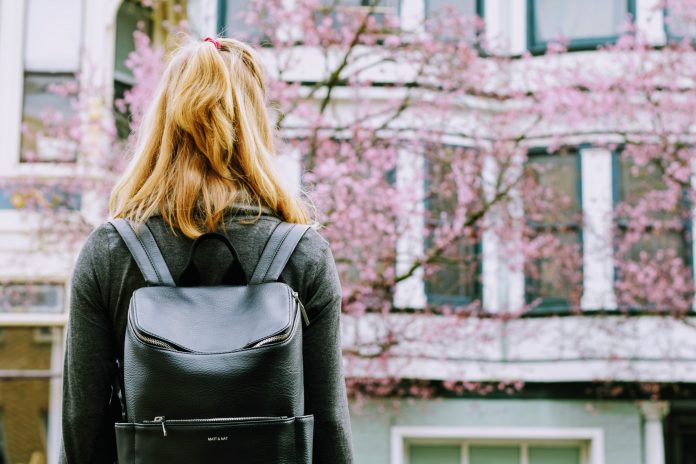I was very chatty and upbeat as a teenager, laughing a lot and giving others advice on their problems.
However, underneath all of the loudness and jokes, I felt very lonely, numb and depressed, with no real connections to those around me.
Pushing my emotions down with food, I didn’t want to burden anyone with what I was going through or admit the embarrassment of feeling something was wrong with me. Everyone else appeared to be ‘normal’, making friends and handling life with minimal effort.

I loved learning at school, but disliked pressure from teachers; the anxiety leading up to exams and having to decide my future based on the results was overwhelming.
Personal development
Between the busyness of school and the stress of family arguments at home, I spent a lot of time alone in my room reading.
After discovering personal development books, I began to learn more about mindset, beliefs and how they can shape our reality. This also inspired my interest in meditation and its effects on healing the body.
Related article: How mindfulness can help with your mental health
Applying what I had learned to my life was a gradual process, but I knew I could create a better future over time.
Helping young people
I went to college and university, then into careers in supported housing, probation services, substance misuse charities, student accommodations and universities.
Through working in education, I noticed an increase in students experiencing challenges with their mental health, but limited services available to meet the need.
The more I interacted with young people, the more inspired I became to focus my career on helping this age group.
I trained in therapeutic counselling and studied further courses around mental health, psychology, youth wellbeing and personal development.
My love of meditation led me to teach this, with skills I later found useful when becoming a clinical hypnotherapist.
Discovering hypnotherapy
I learned how powerful the subconscious mind is in how we feel, the choices we make and our behaviour; recording every life experience we have (even the ones we can’t remember) that influence our habits, responses and how we perceive our identity.
This part of the mind can also control the body’s automatic processes, like our heartbeat and breathing.
Beliefs stored here may explain why we may be so desperate for change, but feel unable to.
Our subconscious has to agree with the goals we have for ourselves, making hypnotherapy an amazing tool to achieve them.
Becoming a hypnotherapist
Hypnosis is similar to a feeling of daydreaming, where focused attention is given to the issue you wish to improve.
When you’re comfortable with eyes closed, I use my voice to guide your imagination to a place where you’re feeling relaxed, so that I can offer your subconscious mind new suggestions of helpful thoughts and behaviours you would like to experience. This can change the underlying narrative and beliefs you hold about yourself deep down.
You are in control at all times and can only accept the ideas that feel right to you.

Confidence and resilience
Through hypnotherapy, I help teens to gain confidence in who they are, understand their emotions and build the resilience needed to overcome challenges.
Outside of my practice, I visit schools, educating teens on the mind, self-awareness and exam anxiety.
I’m grateful that I get to use my own experiences to support young people in creating their future.
You can find out further information on hypnotherapy for teenagers at: www.teenhypnotherapy.co.uk
